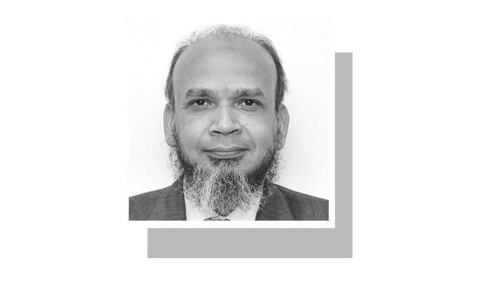Companies in developed economies are facing a shortage of workers. The reason is simple — the labour market offers a much wider range of avenues/options than before for workers for improving the quality of their lives.
More and more job-seekers look at the nature of the job, working hours, other working conditions, wages, career ladder etc or the option for the joys of simple living before making a decision to accept a job. Many prefer to work part-time, do more than one job or find opportunities for self-employment.
Consultancy has emerged as a lucrative business the world over. Professionals and talents in demand build their careers through different jobs or start their own consultancy firms to provide services to big companies, adopting a flexible labour policy.
There is a lot of business in the corporate sector for consultants as companies shed fat to become lean, thin and agile to better face market competition. Non-core activities of firms often are outsourced.
The wage-labour system is gradually being replaced by contract jobs institutions that hire people for specific projects only
In October, 4.2m are reported to have quit their jobs in the US. American employers now realise they should not disqualify candidates with a ‘resume gap’ — those who were out of work for long periods
Owing to a lot of workers’ shortage in the US, Conference Board, a business research association, finds that companies expect to raise pay by 3.9 per cent in 2022 on average, the most since 2008.
On the political front, Joe Biden has vowed to be the most pro-trade union US President in history and has just criticised Kellogg’s move to replace striking workers. He has asked the company to settle grievances through negotiations, ‘free from threats and intimidation from employers.”
“One thing is clear, organised or not, it is a labour moment,” and “the pandemic has provided a cultural shift in which workers reassess their priorities.” These are quotes of certain noted labour economists.
Workers are also demanding a hefty wage in some parts of Europe, not seen in recent years, coming as it does after a period of anaemic wage growth. Inflation starting in spring, has coursed through the economy and everyday life, says a labour analyst.
Pakistan is not immune to global trends. Scrutinising the Labour Force Survey 2018-19, former State Bank governor Raiz Riazuddin observes: not only the wages are very low, but there also seems to be gender discrimination.
The most alarming aspect, he notes, is that the wages did not exceed Rs5,000 per month for about 5.7pc of all employees. And about 45.2pc of all wage workers earned less than the minimum wage set in 2018 at Rs15,000. There are also unsettled issues such as how the minimum wage (MW) is determined, its criteria, its effective country-wide and province-wide enforcement and the respective jurisdiction of federal and provincial bodies in setting MW.
The case of trans-provincial organisations challenging the Sindh government’s MW writ is pending before the Supreme Court for decision. These entities argue that they are under the federal legislative list with regards to the fixation of minimum wages. The court has suspended the provincial decision with the appellants’ undertaking to pay MW of Rs20,000, fixed by the federation, to their workers.
Independent research shows that MW is still below the cost of living. That happens even when the MW is sometimes closely linked to an increase in prices. And MW is not implemented effectively.
However, endorsing recently the Sindh government’s decision to fix minimum wages at Rs25,000 per month, the Sindh High Court directed that the minimum wage should be extended to all workers in formal and informal sectors in the province.
The workers’ wages do vary in various sectors and sub-sectors of the economy, depending on the productivity of each during various phases of their development. But the minimum wage is required to ensure a guaranteed minimum living wage to all low paid workers.
The Supreme Court has also turned down an employers’ appeal against the Sindh High Court judgement, contending that they would lose the competitive disadvantage vis-a-vis other provinces (where wage hikes were lower).
In principle, the minimum wage has to reflect the cost of living, says Pervez Tahir, president of the Council of Social Sciences. He suggests that MW should automatically be indexed with the Consumer Price Index.
In a related development, on December 17, the Supreme Court reinstated 16,000 sacked government employees in their positions, upholding their fundamental right to employment enshrined in the 1973 Constitution.
The struggle of the workers to improve their livelihood is also being reinforced by an update in labour economics.
In his illuminating article on December 16, Mr Riazuddin wrote: labour economics is a very important but largely neglected area of research in our country. The pioneering research work by eminent labour economist David Card, he says, should be replicated in our country’s setting to set our labour and wage policy in the right direction.
Mr Card won the Nobel Prize 2021 for empirically establishing that increasing the minimum wage does not reduce the labour growth which, says Mr Riazuddin, is exactly the opposite of existing theoretical orthodoxy. Mr Card and his colleagues have estimated very negligible even positive effects on employment and economic growth of minimum wages.
The PTI government has also been publicly asking businesses making robust profits to raise the wages of their employees.
The rising gains in productivity are not fairly shared among employers and workers. And there is also a well-recognised abnormal difference in compensation paid to top executives compared to the rest of the employees.
The low wages of workers and unfair compensation to the majority of employees are significantly contributing to surging inequality. And less than 1pc of workers are unionised thanks to policies that have pushed labour into the informal sector, says Pakistani researcher Saba Gul Khattak.
‘Development without prosperity’ is the screaming headline of an article published in this newspaper on December 19 on the plight of the ordinary citizens and small fishermen in Gwadar and adjoining areas. A related news item spotlights: ‘sales of low priced bikes (motor cycles) decline, but those of costly ones rise.’
Currently, the wage-labour system is gradually being replaced by contract jobs institutions like the World Bank that hire people on contract for specific projects only.
The digital age is reorganising the mode of production and distribution, giving the workers more freedom and choices to improve the quality of their lives as they deem fit.
Published in Dawn, The Business and Finance Weekly, December 27th, 2021















































Dear visitor, the comments section is undergoing an overhaul and will return soon.